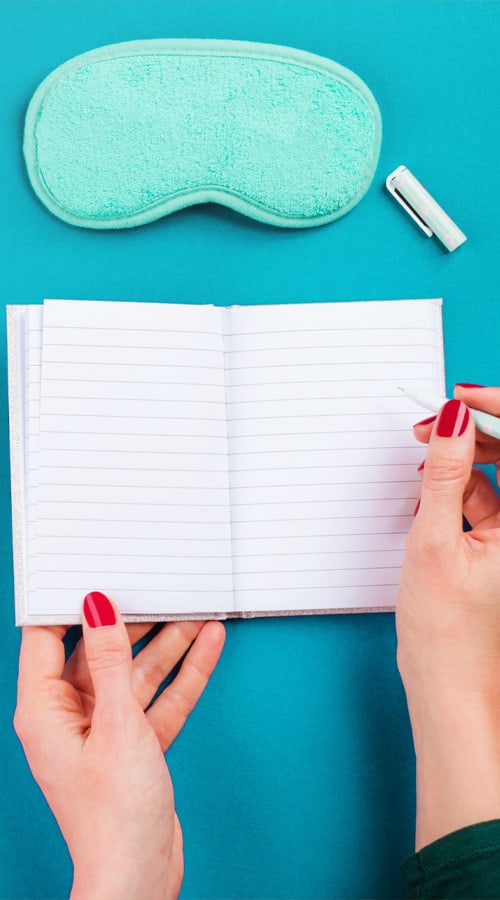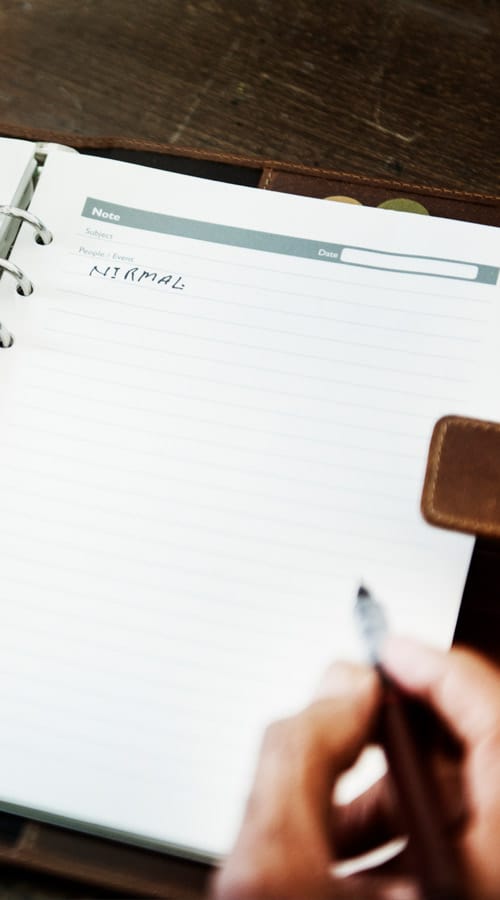Module Four: Stress Management Strategies & Action Planning
This course is designed to empower you and take you from a place of not knowing what stress really is- potentially having a lot of it in your life and feeling overwhelmed- to a place where you feel confident and capable with a knowledge of what stress is, how it manifests in your life and most importantly, how you can deal with it well and make it work for you.
https://vimeo.com/490207724
1. BODY
Nutrition, sleep, movement and exercise – pattern interrupts
Nutrition, sleep, movement and exercise – pattern interrupts
Two of the most valuable ways you can help your body to handle stress well are to improve the quality of your nutrition,
the food you eat, the quality of your sleep, in short, when you are stressed- eat more and sleep more.
International Brands asked the Court to assess whether Invicta had authority to negotiate at the time the agency agreement was made.
Let’s look at these in a bit more depth along with movement and exercise:
Nutrition
The food you eat is converted into energy and is used by your body for all the processes it needs to do, such as digestion, growing muscle and handling stress. And the better quality food you give it, the better it’s ability to perform these processes to a higher standard, it’s that simple. By improving your food choices, you will also have more vitamins, minerals and essential phyto nutrients in your system to ensure your body has the tools that it needs to do the job. The following graphic contains 5 top tips to help you to get started giving your body quality nutrition for managing stress:

Body: Sleep
Sleep:
Now let’s see how improving your sleep can help you with stress…
Sleep:
When you are asleep, your body is in recovery mode, sorting mentally and physically through all the events and damage that has occurred during the day and repairing and growing as much as possible, this is why babies and children need so much sleep. Think of it like this, you cannot be stressed when you are asleep, and having a nightmare doesn’t mean you’re stressed while asleep! As with eating a bit more to help your body cope with stress, sleeping more in times of acute stress is a powerful jab to cultive to help you to manage in these times.
Sleep Habits
Here are 2 other sleep habits to help you with stress:

Body: Movement
Movement:
Now let’s explore the benefits that movement can bring to help you with stress in your body.
Movement:
We all sit down a lot, too much usually, each day. Our bodies are designed to be regularly moving, walking, turning, lifting, stretching, pushing and pulling. And as we have said earlier in the course, the majority of our stressors live in our minds. This is why we can sit all day, without moving from our desks. Then stand up at the end of the day, physically drained and mentally tired from stress.
Movement Top Tips
Use these five top tips to get yourself moving in your day:

Body: Exercise
Exercise:
Now let’s explore the benefits that exercise can bring to help you with stress in your body.
Exercise:
And one more great way to take care of your body to help it with stress is to exercise regularly. Alongside quality sleep and nutrition, exercise is one of the best habits that you can cultivate to help your body to not only handle stress, but to do so effectively and well.

Resistance:
When we exercise, we purposely make our bodies exposed to a stressor- such as a heavy weight, or a difficult jumping of running movement. And it doesn’t like that. So as long as we get proper rest afterwards with quality sleep and nutrition, it will grow back stronger, faster and become more efficient to help us to handle the same stressor in the future. That is why it is so important to keep challenging ourselves and our bodies through our exercise.

Feeling:
Also, like our bodies are flooded with cortisol, the stress hormone, and we can have too much of this and feel awful, regular quality exercise can help to create and release positive feel good chemicals that travel around our bodies and make use feel great! You might hand heard of endorphins, sérotonine and dopamine? These are some of the chemicals they are flowing in your system after doing a workout- that’s why you may feel what is called runners high of post workout boost. The next three panels contain 3 top tips to help you to make sure they your exercise is effective to help you help your body to handle stress well:

Exercise Top Tip #1:
Progressive overload. Make each workout a little bit more challenging each week, or each workout, depending on how fit you are. So you could lift a little bit more, or run a bit further, or add 2 mins to the length of your workout. This will mark sure your body keeps growing and adapting to the stress you are putting it under in they movement. Think very small and consistent changes over time, they will add up.

Exercise Top Tip #2:
Embrace variety. Mix up your workouts. Try different things, routines, exercises and approaches. By doing this you will keep your body guessing, which forces it to keep adapting and growing, as if doesn’t know what is coming next. It will also help to keep you motivated to keep going, and not get bored.

Exercise Top Tip #3:
Make sure your exercise is something that you enjoy! This is a form for you, not a stressful pressure, you will have enough of those in your day already. This is a time for you to enjoy and to feel proud, knowing you are doing something to take good care of yourself. If workout with strong intensity, and if you don’t enjoy and see no point in, it will just be distressing. But if it’s something you really enjoy, or too see the meaning and benefit in if for you, then you will feel motivated, you will enjoy it and you’d blog will thank you!
Body: Routines
Body: Routines
Body Routines:
Make sure to take the time to look at your approaches, your habits and routines for your nutrition, sleep, movement and exercise. Write down some improvement and commit to making some tweaks and changes today and they will add up together over time to help your body to be more resilient, stronger and Abel to handle stress very well.
2. MIND
Meditation, Mindfulness, Breathing
One of the best positive ways to improve your relationship with stress is to take good care of your mind and your thinking. Many is out stressors we carry in our minds and spend a lot of time thinking about, often to much. So let’s look at three ways to help take good care of your mind, and bring it out of fight or flight, to spend more time in rest and recover.
Mindfulness
Meditation:
Meditation is one of the best ways to switch on your body’s para sympathetic system, it’s rest and recover response. Google the work of Buddhist monk mattieu Ricard. A neuro scientist as well as a monk, Ricard and his term studied the positive effects of meditation in the brain, and they find they experienced meditators could switch on the rest and recover response in seconds through meditation! This is because I helps us to direct and shift our attention and focus out of and away from the amygdalas and towards the pre frontal cortex at the front of our brains. It can actually, over time and with repeated efforts, help us of return our brains to be calmer, more positive, more focused and more happy.
Headspace:
At RKMSUK we recommend headspace as a great guided meditation app to get you started, there is also calm and many others they you can find online. Here’s 3 top tips to get you started with meditation:
Headspace (cont.):
- Commit to doing it for a week, a day is no long enough, so do it every day for just one week, and at the end of the week, celebrate and reward yourself in some enjoyable way- having this to look forward to will keep going motivated throughout the week.
Do it at the same time every day. Take some time or figure out when would be best for you and then stick to that time, this will help make it easer for you to remember and stick to doing it
Do not worry about how you feel during it or expect quick fixes. You know that every single time that you meditate, you are reducing your stress and improving your body’s ability to handle it.
Mindfulness:
Now you may now want to meditate or find it difficult to sit down and not move for 10 mins or so at a time. No problem, mindfulness is another great way to train your mind and help you to handle your stress well. So often stressors are coming from us thinking negatively about past or future events and said being back and forth between them. This can be mentally exhausting. So mindfulness offers us the opportunity to do the opposite, to have moments where we focus on the present moment only, and what is around us. These moments are great mental stability zones, where you can say to yourself,
“I am safe in this moment “Nothing is stressing me of hurting me”
Mindfulness (cont.):
Here are three ways to practise mindfulness in your day today:
- Pick an activity and do it mindfully really pay attention to what you are doing and all your senses. Let’s look at doing the dishes- notice the bubbles, the flow of the water, the feel as you dry good hands, focus your attention on just these things and gently bring your mind back to these sensations when it wanders. Use this approach of paying attention every day with different activities and see what you can notice
- Have some time away from good phone every day- it is not a mindful device, it is full of the past and the future. Take 30 mins-1hoir away from it and pay attention to why is going on in that moment
- Find a part of nature- a tree, clouds in the sky, a field, some flowers and really look at it. The colours, the patterns, the shapes. You are training your mind to pay attention, this will be constantly resulting in strengthening your ability to come ouf and away from the stress response into a clamer, more focused mind.
Breathing:
And one more incredibly effective way to help your mind with stress is to change your breathing pattern. With all breathing techniques, make sure to practise them safely, not whilst driving a car or out and about. The best place to start practising is at home sat down or lying down. When we are stressed, we tend to breath more shallowly and quicker, in an often unconscious attempt to get more oxygen into it system, which improves blood flow and can stimulate the stress response.
Breathing (more):
A healthy stress response which generates more oxygen is a good thing in the short term, as we have learned, it helps your body to perform better. But we are not designed to live in this state permanently.
When you breathe out, the oxygen is diffused through your lungs and circulates around your body, to where it is needed. And so the real benefit when attempting to calm ourselves down are with the out breathe, not the in breath. This is why you may have heard of counting to 10 or take deep breathes as away of calming a panicked, anxious, stressed mind.
3. SPIRIT
Spirit: Connection & Purpose
Ask deep questions.
Spirit: Connection & Purpose:
It is necessary to help people to nourish their spiritual health, what can be called your “spiritual batteries”. In relation to stress, this means taking the time to understand what stress means to you, what you feel its purpose is, and how you feel about its role in your life can completely transform your ability to enjoy it as a necessary and useful part of your life.
Learner Activity: Self-Reflection Questions
- What do I really want for my life?
- What stressors are going fo my part of my life to make this real?
- Who is important to me in my life?
- How can I help them to understand and manage stress in their life?
- How can I make stress a friend, a positive and necessary part of my life?
Take the time to write answers to all of these questions before moving on. So many people have good intentions to improve the stress in their lives, but it has no meaning for them, and so they struggle. By taking the form to uncover what you want in life, and knowing stress will be a part of if and help you to get there, you will now be committed to your success and happiness on a much deeper level
4. EMOTION
Family and Journaling
Stress in our bodies can make us feel all sorts of difficult emotions as a result- anxiety, anger, panic, fear, dread, depression and overwhelm. When you are experiencing these emotions, especially, regularly, it can be difficult to see a way forward or hope for improvements. We all want to feel positive emotions such as joy, happiness, excitement, wonder, awe and love. And taking the time to care for your emotional health will have a huge positive impact on your ability to understand your own emotions and how how they affect your stress and vice versa.
Emotion
Let’s look at two practises to look after your emotional health, which will help you in your long term relationship with the stress in your life.
Journaling
The first practice is journaling:
Journaling:
Journaling is an excellent way for begin to practise the skill of self reflection. This means they you take time after events and situations to consider how you acted, what happened, the effects it had on you and what they meant to you. Here’s six best practices to make journaling a successful stress habit for your emotional health:
Journaling Best Practices

Second Practise: Support Team
The second thing they you can do to provide emotional security and support for stress is to have what we call a support team in place
Support Team:
We are social creatures, we all want to be listened to, to be hugged, to laugh and to enjoy good times with those we love. And one of the best things that you can do to give yourself emotional strength, security and stability is to keep in regular contact with your support team. Everyone’s family and friends are different, and this is not support team. They are members of your most inner circle, who will gladly help and support you. Now because everyone’s life situation is different, so to will your support team be.
Your team will be a small group, not large, and personal to you. Here are our suggestions for who it should include:
Support
-
Your GP
Having a good relationship with your doctor is essential, make it a priority. If you have not had this so far, consider trying a new doctor or surgery. Tell them you are wanting to take good care of yourself and your stress and you value their medical expertise. Their medical knowledge will be essential for you as a sounding board as you begin to make positive lifestyle changes.
-
A Support Buddy
This can be a loved one, family member or friend. But it needs to be someone that you can trust. Their role is to listen to you and be there to support. Their role is not to fix your stress problems for you. They are go remind you that you are not alone, and that you are supported and worthy of love. If you do not have one of these yet, you can always call the Samaritans any time for free and they will listen to you and offer that supportive ear.
-
Mentorship
Someone to help you grow- this could be a mentor, someone who you look up to, someone who is in good health, someone who when you spend time with, you feel inspired. This will help you to be open to trying new ideas out, a sense of continually, progressing, growing and improving is essential to help you to feel that you are handling your stress well. If you do not have someone like that in your life yet, read books and watch videos online and listen to audiobooks on inspiration, personal development, professional development and stress strategies. This will be a great way to get you started.
And that’s it. You can include more people if you want to. Keeping in constant contact and communication with this important support team will help you to feel supported, secured, safer and reminded that everyone experiences stress, and you are not on your own.
Take the time now to decide how you are going to begin your journaling and who you want on stress support team.
5. DIGITAL LIFE
Digital – Social Media, Timers & Detox
Digital – Social Media, Timers & Detox
Two of the most important relationships in your life are the one you have with stress and also, the relationship that you have with your phone. It can be a source of joy, fun, excitement, learning, entertainment and relaxation. But it can also become a stressor and send you work emails, disturbing images and videos on social media, low battery and so low productivity an can actually become a stressor-something which initiates the stress response- in your life.

Social Media
Firstly, social media can be a great way of staying connected with loved ones and being creative, but it can also result in increased sress, anxiety, low moods, depression and low self esteem from too much time comparing ourselves with others and their lives. Recognise that excessive social media use can be a subtle yet strong source of stress in your life. Cutting down on the amount of time you spend on it, as well as who you interact with, can make a massive positive impact on the quality of your health and stop it from being a source of stress in your life.
7 Helpful Habits to Cultivate Digital Health
Here are 7 helpful habits that you can cultivate to make sure that your digital health is great, positive and improving your relationship with stress, not making it worse.

These helpful habits can be applied to all your digital devices to help create a lifestyle where the digital part of your life is balanced and healthy. Remember, the relationship that you have so your phone is one of the most important that you have in your life. Make it a friend, a resource to help you to mange your stress well.

Like your phone battery, your energy levels and willpower to deal with stress and handle it well is limited. So make the effort to cultivate these habits, as well as those mention in the other health section in this module. Each time you engaged in one of the healthy stress practises, techniques, tips and habits, you will en charging your energy reserves each tome. Having consistently high energy reserves will make a massive positive difference in your ability to deal with stress well each day.
Key point-make stress work for you in your life!

KEY POINT
MAKE STRESS WORK FOR YOU THROUGH
- PERCEPTION CHANGES
- EU STRESS & PHYSICAL CHANGE
- LIFESTYLE CHANGES
Share your successes with us: [email protected]
We would love to hear your success stories regarding the positive changes and results you create for yourself using the knowledge you now have from this course.
Visit kataholos on social media and use the hashtag #kataholosstresssuccess so we can see how you get on and celebrate your achievements. From all of us here at RKMSUK, we have loved helping you and look forward to hearing about your future stress successes- they are out here waiting for you!
https://vimeo.com/491321733
The final course assessment to follow contains a number of questions to provide you with an opportunity to solidify and retain the information from this course.
- To access the final assessment, click the Stress Success – Stress Management: Final Assessment tab underneath the “Module Content” tab below.
- Thereafter, on the next page – click the “Start Assessment” button to begin.
- After answering each question proceed through the remaining questions by selecting the “next” button at the bottom right of each set of answers: